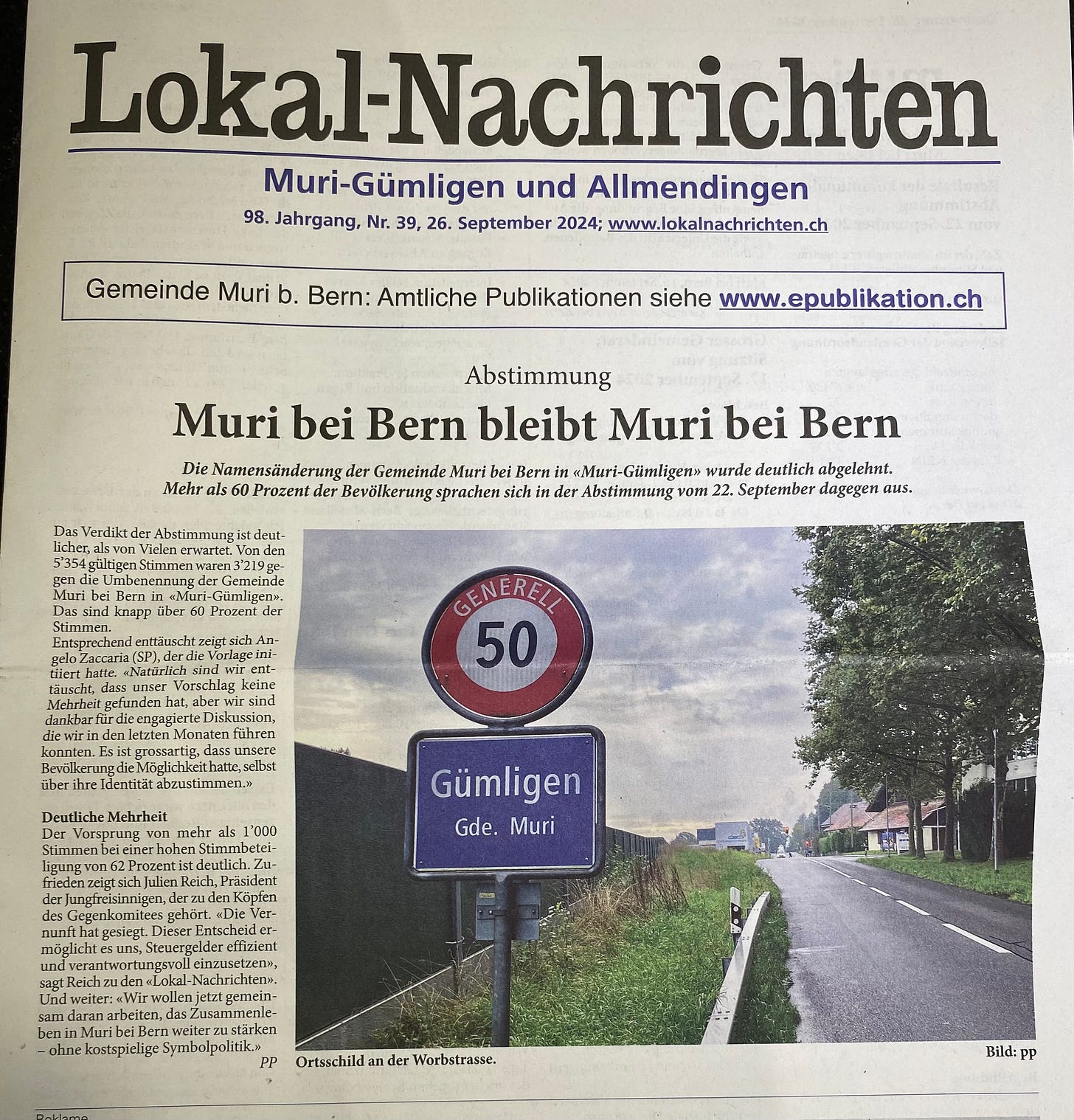The results are in, and according to last week’s poll on whether you prefer the next few weeks of the Happy Wanderer to be The Bookshop book club or the usual hodgepodge, you picked . . .
The Bookshop book club, by an 86–14 margin! Wow!
But actually, only seven people voted—six for the book club, and one for the hodgepodge. My mathematician husband would point out that seven votes out of almost five hundred subscribers does not yield a meaningful and representative result. In fact, the overwhelming majority of readers, by not voting, chose “Whatever.” I was briefly at an impasse over what to do, until I remembered that one of the goals of the Happy Wanderer is to help us avoid zero-sum thinking and find win-win solutions. Most elections are zero-sum, but ours doesn’t have to be. So here’s my win-win solution: For the next few weeks, the first half of each post will be The Bookshop book club, and the second half will be the usual hodgepodge. You can read and participate in either or both (or, I guess, neither). Sound good? Great!
The Bookshop Book Club
Penelope Fitzgerald based her second novel, The Bookshop (1978), on her own experiences.1 After Fitzgerald’s husband, Desmond, was disbarred and prosecuted for forging checks, the family fell into dire poverty. In 1958, they fled their London home, leaving nearly everything behind, to avoid the shame of being evicted for non-payment of rent. They decamped to the little village of Southwold, on the Suffolk coast, where friends had offered them a house. Fitzgerald’s friend Phyllis Neame gave her a part-time job at her Sole Bay Bookshop, but Fitzgerald couldn’t earn enough to keep the family afloat:
They ran up huge bills in the Southwold grocers, and had to avoid the shops which would no longer give them credit. They would buy things for the house on approval, like a refrigerator, and then send it back and get another one. . . . They spent quite a bit of their time, at weekends, sitting outside various pubs waiting for Desmond to come out.
By 1959, the family was so deeply in debt that all their property had to be sold and they had to leave the house. Fitzgerald and her children eventually moved to the decrepit houseboat that is the setting for her next novel, Offshore.
For next week, let’s read chapters 1–3 (pages 1–44 in my edition).2 As you read, you may want to think about how Fitzgerald’s experiences informed her depiction of the community where Florence has made her home. Note your reactions to the small-town setting and to the characters. Have you ever spent time in a small town like this? Which characters do you like and sympathize with? Who seems as though they may be an “exterminator”? And what do you make of “the rapper”?

Please also note down your favorite passages to share with us next week. To whet your appetite, here’s my favorite quote from this section, in which the introverted husband of a society hostess is at loose ends at a fancy party she has organized:
The General was opening drawers and cupboards with the object of not finding anything, to give him an excuse to wander from room to room. In the 1950s there were many plays on the London stage where the characters made frequent entrances and exits out of various doors and were seen again in the second act, three hours later. The General would have fitted well into such a play. He hovered, alert and experimentally smiling, among the refreshments, hoping that he would soon be needed, even if only for a few moments.
Who among us has not felt the same awkwardness at a lively party where we know no one?
I’m looking forward to our discussion next week, readers! Please share what you are hoping to get out of our book club in the comments.
“A Republic, If You Can Keep It”
Perhaps readers are familiar with this quote—Benjamin Franklin’s reply to Elizabeth Powel when she asked him, “Well, Doctor, what have we got, a republic or a monarchy?” Perhaps you are aware that we have an election coming up on November 5. And perhaps there are people in your life who haven’t quite gotten their act together to register to vote, or perhaps all the different dates, deadlines, and procedures in the different states are confusing. Below are some links you can share with anyone who may need them. Let’s keep our republic!
If you or someone you know hasn’t yet registered to vote or has recently moved and needs to update their registration, this page will help. Even the states with the earliest deadlines allow voter registration up to thirty days before the election. That means that there is still time! Note that you will need a driver’s license or other form of state ID in order to register.
If you’re not sure where your polling place is, you can find it here.
If you would like to vote by mail or need an absentee ballot, you can use this page to find out whether vote-by-mail is allowed in your state, and, if so, how to request your ballot and vote.
If you are unsure of the rules and deadlines for voting in your state or would like to vote early, here is a gift link to a helpful page in the New York Times.
If you are an American citizen living overseas, I highly recommend Vote from Abroad, a nonprofit organization that helps us register, request our ballots, and vote.
In Which I Dox Myself
Recently, a contentious issue roiled our otherwise bucolic community here in Switzerland. Every lamppost carried duelling posters, and friendly young campaigners—armed with free chocolate—waylaid shoppers outside the grocery store to make their case.3
Here’s what was at stake: We live in Muri bei Bern,4 which is right across the highway from Gümligen. Muri and Gümligen share a government and school system and are essentially the same town. The city government wanted to make it official and rename the two towns Muri-Gümligen, and so they brought the issue to a vote. People got very het up and turned out in droves to defeat the proposal by nearly a two-to-one margin.

I was curious about what percentage of voters in our community showed up to the polls, so I crunched some numbers. There were 5354 votes cast. The population of Muri-Gümligen is 13,000, of which about 72 percent are old enough to vote. But about one-eighth of the people who live here are non-voting immigrants like me. By my rough estimate, then, there are around 8200 eligible voters, of which about two-thirds made their voices heard in this tiny local election. That is one heck of a turnout, and an inspiration for us all!
How about you, readers? Have you helped anyone register to vote, or are you volunteering to increase voter turnout? Please share your thoughts in the comments!
The Tidbit
I know that Rush isn’t considered cool, but I don’t really get why. They are virtuosos, and their songs slap. As one commenter to the video says, “Only three of them? That much music by three guys? Gives me goosebumps!” The lyrics to “Freewill” are especially relevant right now: “If you choose not to decide, you still have made a choice.” So choose to decide, and vote!
All the facts in this section come from Hermione Lee, Penelope Fitzgerald: A Life (Knopf, 2015). The quotation can be found on page 130.
My edition of The Bookshop has a nice introduction by David Nicholls, which offers background information and a thoughtful reading of the book’s ideas and themes. Because there are spoilers, you may want to wait to read the introduction until after you’ve finished the book.
As a foreigner, I couldn’t vote of course, but the friendly young campaigners offered me chocolate anyway.
This is how I have doxxed myself: Now you all know where I live. Come on by for a visit!





